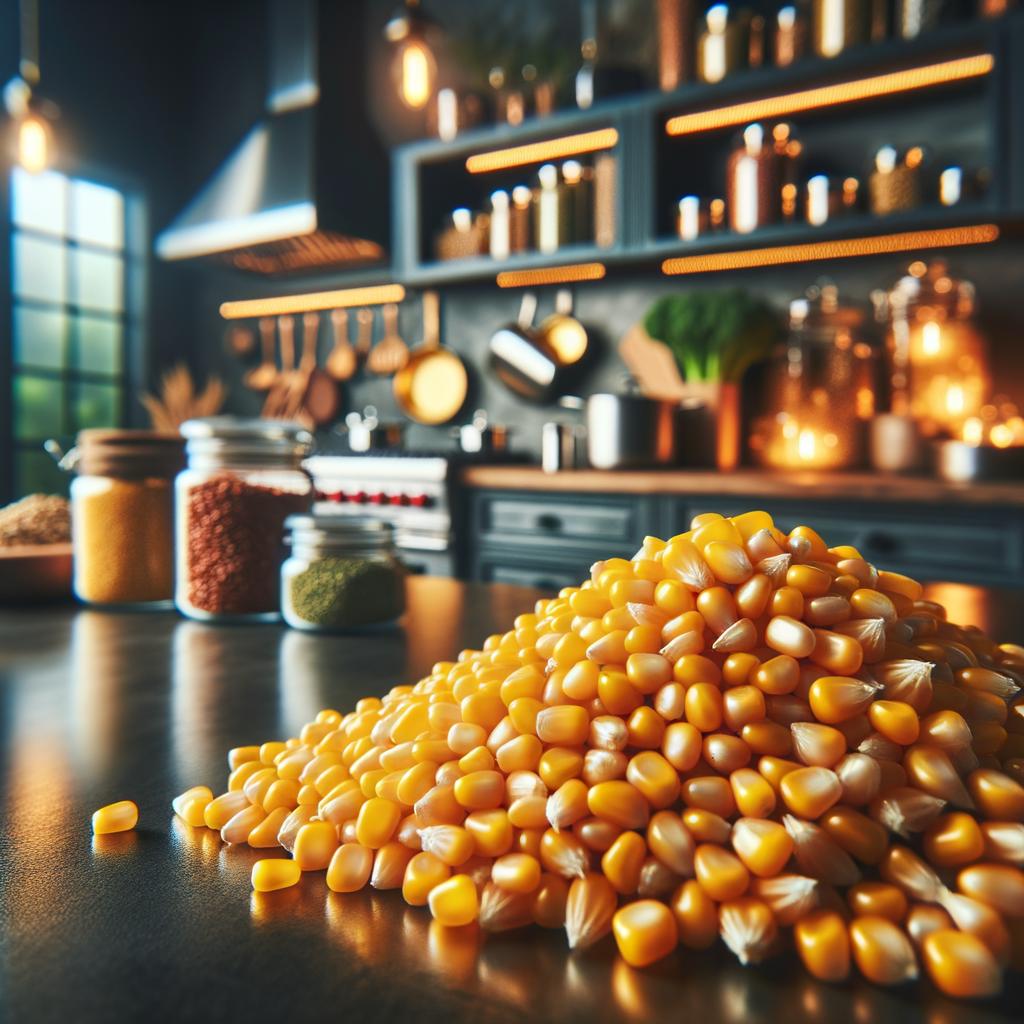Corn Kernels

Description
Corn kernels, the sweet jewels of the cob, are a delightful ingredient that have graced our plates for thousands of years. Each kernel is a perfect sphere, coated in a silky skin that pops open to reveal a tender, juicy center. Their color ranges from sunny yellow to deep gold, with a glossy sheen that's as inviting as a summer's day. The flavor profile of corn kernels is sweet yet subtle, with a hint of earthiness that reflects their humble origins. What sets corn kernels apart from other grains is their versatility - they can be eaten raw, boiled, grilled, or even popped, making them a culinary chameleon.
Primary Uses
Corn kernels are a staple in many cuisines around the world, from the hearty cornbreads of Southern America, to the delicate corn soups of China. They're a key component in Mexican cuisine, ground into masa for tortillas and tamales. Corn kernels are also used to make cornmeal, a vital ingredient in polenta and cornbread. Beyond the culinary realm, corn kernels have been used for medicinal purposes, as a source of biofuel, and even as a form of currency in certain cultures.
History
The history of corn kernels is as rich and varied as its uses. Originating in Mexico over 7,000 years ago, corn was considered a sacred plant by the Mayans and Aztecs, who believed it was a gift from the gods. It was brought to Europe by Christopher Columbus in the late 15th century, and quickly spread across the globe, becoming a staple in many diets. The story of corn is one of exploration, trade, and cultural exchange. It's said that in ancient times, a single kernel of corn was enough to buy a day's worth of food in some cultures!
Nutritional Information
Corn kernels are not only delicious, but also packed with nutritional benefits. They're a good source of dietary fiber, which aids in digestion, and contain essential vitamins like B1, B5, and C, along with minerals such as manganese, phosphorus, and magnesium. They're also a source of antioxidants, which can help prevent chronic diseases. Compared to other grains like wheat or rice, corn kernels have a slightly higher sugar content, giving them their characteristic sweetness. However, they're still a healthy choice, especially when consumed as part of a balanced diet.

